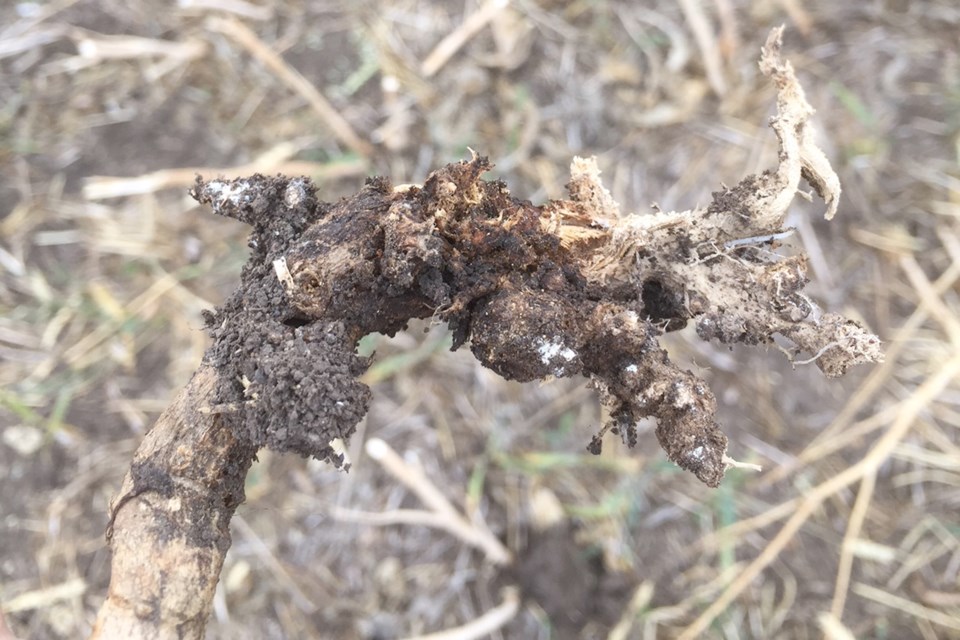After the first confirmed cases of clubroot were discovered in Rocky View County (RVC) last year, the County is advising local farmers to do their part to limit the spread of the disease as the municipality conducts inspections throughout the summer.
“Clubroot is a soil-borne disease that attacks canola and can really cause damage to the yield, which takes away profit from the farmers,” said Jeff Fleischer, manager of Agricultural and Environmental Services.
In April 2018, Fleischer told Rocky View Weekly that, while the disease had not previously been detected within the County’s boundaries, RVC was inspecting fields for clubroot after neighbouring Mountain View County reported confirmed cases.
Fleischer now says the disease has been confirmed in RVC for the first time.
“[In] September 2018, we did find clubroot in the southeast portion of the county,” he said. “It was confirmed in four fields.”
Canola production is a vital industry both provincially and locally, according to Fleischer, and the impacts of clubroot on profitability make the disease an important concern.
“In extreme cases, it can cut your yield down 100 per cent,” he said.
Symptoms of clubroot, according to canolacouncil.org, include stunted growth, wilting, premature ripening and noticeable gals on the roots. However, the primary symptoms of the disease occur underground.
Additionally, Fleischer said, there is no cure for clubroot – the disease can persist in the soil for up to 20 years.
“There are resistant varieties of canola that can be planted, but it really takes management to keep the clubroot in check,” he said.
Those management measures, Fleischer said, come down to longer crop rotations. While the disease can survive for up to two decades, he said the half-life of clubroot is about four years – meaning a crop rotation that includes canola planted only once in that time frame can reduce the chance of the disease spreading through the field. While it is detrimental to canola production, Fleischer said, clubroot does not affect other major cereal crops like barley and wheat.
Cleaning equipment is also crucial to limiting the spread, Fleischer said.
“Even if it’s just taking the majority of the dirt off of equipment,” he said, adding careful cleaning keeps infected soil from being transferred into a healthy field.
The disease impacts farmers, Fleischer said, and not the wider public, but he noted everybody should take caution not to inadvertently transplant soil from field to field.
“If you’re transferring soil through shoes or tires or equipment, those are the big concerns,” he said.
While emphasizing it was not a “good news story,” Flesicher added the reduced planting of canola this year may help combat the disease.
“What I can say is that, with the canola trade issues, we are seeing less canola being grown in the county this year, which does reduce some of that [possibility] for clubroot to spread,” he said. “It’s such a touchy subject; you hate to say that.”
Anyone who thinks they may have a field infected with clubroot should notify RVC by calling 403-230-1401, so an inspection can be conducted.
“We are willing to work with farmers,” Fleischer said. “We’re not trying to be the bad guys and the clubroot police on this. I know, sometimes, people are afraid to tell the County.”
RVC began this year’s inspections July 17, Fleischer said, and will continue looking for clubroot until the end of August – at which point he said the municipality will have a better idea of the extent of the issue throughout the County.

